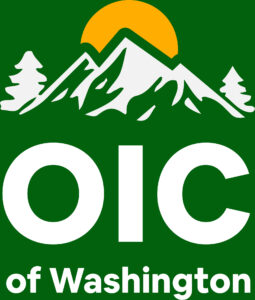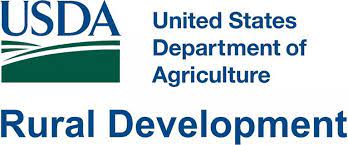
Small Business
Resources
What we Offer
Business Development Services:
Business Plan Help – refine your ideas, develop a solid business plan, and navigate the challenges of entrepreneurship.
Digital and Financial Education:
In-person Workshops or one-on-one assistance:
- Digital Education: Join our Computer Basics workshops to gain essential skills such as using a computer, navigating the web, and utilizing basic software applications.
- Financial Education: Participate in our Financial Education workshops focused on understanding basic finance terminology, the importance of having a banking account, and mastering accounting software.
These workshops are available in both English and Spanish. If you have any questions reach out to Yanira Cisneros, at yani@ycda.com or by phone at 509-575-1140.
Upcoming Childcare Accelerator Events
This project “Childcare Accelerator Program” is supported by the Administration for Children and Families (ACF) of the United States (U.S.) Department of Health and Human Services (HHS) as part of a financial assistance award (Award #: 90XP0589) totaling $140,000 with 100 percent funded by ACF/HHS. The contents are those of the author(s) and do not necessarily represent the official views of, nor an endorsement, by ACF/HHS, or the U.S. Government. For more information, please visit the ACF website, Administrative and National Policy Requirements.
Resources for all businesses
Small Business Intake Form
Suppose you are starting a business in the Yakima Valley or considering entrepreneurial ventures. You’ll discover a variety of helpful resources available: The YCDA Business Intake Form aims to streamline our assistance process, enabling us to better grasp your unique business needs and offer tailored guidance. You can reach out to YCDA’s Bilingual Business Development Manager or Small Business Development Center (SBDC), Certified Advisor. The form is divided into three different phases; choose the one that best fits your needs.
PHASE 1: This phase is designed to gather information about the entrepreneur’s business concept, their relevant experience, and the ownership structure. It aims to assess their preparedness, background, and initial business model to understand how serious and committed they are to starting their business.
PHASE 2: In this phase, the focus shifts to established business. The goal is to understand their current challenges, goals, operational processes, and strategies. Entrepreneurs in this phase are looking for assistance with existing business operations and are exploring directions for growth or optimization.
PHASE 3: This phase is tailored for businesses that are primarily focused on growth and customer retention. It aims to identify their growth strategies, financial performance, and areas where they seek assistance for expansion. Advisors in this phase help business plan for sustainable growth and increased customer loyalty.

Join the thriving small business community in Yakima County! Take advantage of YCDA’s specialized Digital and Financial Education workshops, explore our website, attend our events, and complete the YCDA Business Intake Form for personalized assistance—all in the confidence that your information is treated with the highest level of confidentiality.
Thank you for choosing the Yakima County Development Association as your partner in small business success!
Finance/Access to Capital
GRANTS
The Yakima County Development Association received a grant to provide bilingual technical training to Yakima County childcare providers prioritized by their technical barriers to other resources. Services will include:
- Workshops and one-on-one technical assistance training.
- Covering Start-up assistance, Digital, and Financial Education.
If you are a daycare and would like assistance, reach out to Bilingual Business Development Manager, Yani Cisneros at 509-575-1140
LOANS
YCDA supports business recovery and we connect small businesses to community-based lenders and loan readiness coaching. Access to capital is crucial for small businesses in Yakima County, as it is for small businesses in any region. Our goal is to help get your business loan-ready.
Getting Started: There are a variety of funding sources available for established businesses. As general parameters, businesses need to meet the following criteria to qualify for loans:
- The company should be at least two preferably three-plus years old;
- The business should be profitable (especially over the past 12-18 months)
- The company or owner(s) should have collateral to secure loans; and
- The company and owner(s) should have a good credit record.
Businesses can access both short-term and long-term loans to support their enterprise. It is very important to use these funding resources appropriately with a business. For example, bank lines of credit are great for covering operating expenses. Lines of credit are a lousy way to buy a piece of equipment though. Businesses need to use term loans to purchase equipment, real estate, and other long-living assets.
To put your best foot forward with lenders a business should pull together the following information to support a loan request:
- 3 years of business tax returns;
- 3 years of personal tax returns (for all owners with 20+ percent stake in the business);
- Personal financial statements (for all owners with a 20+ percent stake in the business)
- interim financial statements (profit and loss) for the last 60 days;
- Company and personal bank statements for the last year;
- Current list of accounts receivable and accounts payable;
- Copies of legal agreements (articles of incorporation, by-laws, operating agreements, leases, promissory notes, etc.);
- A list of items being funded with loan proceeds (including invoices or purchase orders);
- A financial projection for at least one year; and
- A brief business plan that describes the company and the proposed expansion project (or loan request)
OTHER FINANCIAL RESOURCE OPTIONS: Always check with your current financial institution first.
- VIZIONS: Local Certified Development Financial Institution (CDFI) and a Certified SBA Microloan Intermediary. Providing business assistance since 1991. With a mission to encourage community development through self-employment opportunities for low-income entrepreneurs.
- UNITED STATES DEPARTMENT OF AGRICULTURE (USDA) LOANS: The US Department of Agriculture operates a Business and Industry Guarantee program similar to the SBA 7A program.
- Small Business Administration Loan Programs: The Small Business Administration offers two loan programs (SBA 7A and the SBA 504 program) that are used in partnership with banks and commercial lenders.
- Small Business Loans available through the SBA
- Loan information for start-ups
- 7(a) SBA Program
- Acquisition Financing
Don’t have a relationship with a financial Institution? These institutions were the State’s leading issuers of SBA 7(a) loans in 2023:
- KeyBank – 161 loan approvals
- U.S. Bank – 121 loan approvals
- Banner Bank – 112 loan approvals
- Umpqua Bank – 108 loan approvals
- Wells Fargo – 38 loan approvals

Additional Start-Up Support

VIZIONS: Providing business assistance since 1991. With a mission to encourage community development through self-employment opportunities for low-income entrepreneurs.
- Business assistance and plan development
- Credit Coaching
- Review of personal & business financials
- Financial fitness on how to build assets
- Educational business seminars

OIC: Economic development and career training agency. Providing resources to start-ups and existing businesses to help you navigate the challenges and complexities of the business world.
- In-person/virtual education and counseling
- Over-the-phone coaching
- Business plan development
- Business workshops
- Budget & credit coaching
For additional information contact: OIC


United States Department of Agriculture (USDA) Loans:
The US Department of Agriculture operates a Business and Industry Guarantee program similar to the SBA 7A Program.
The USDA guarantees 60-80 percent of eligible bank loans made to farmers, coops, rural businesses, nonprofits, and tribal governments. Loan proceeds can be used for working capital and fixed assets.
For additional information contact: USDA
